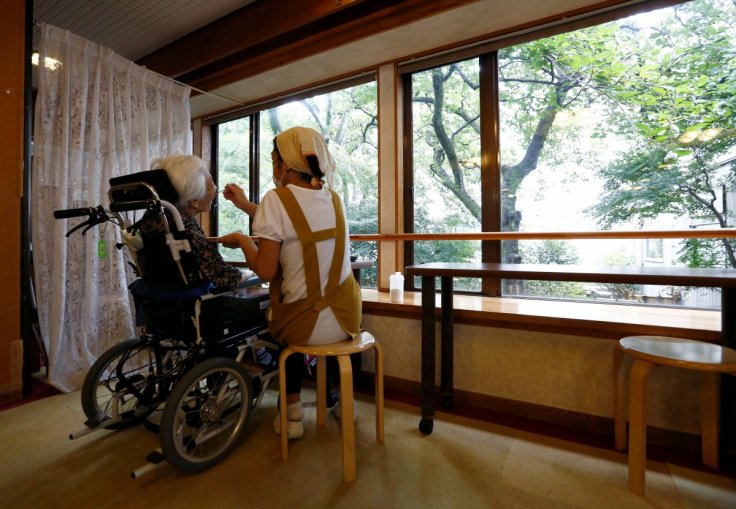Thousands of Coronavirus patients, over the age of 80 and some 60, were allegedly not sent to the intensive care unit in the UK to put under ventilators in a bid to ease the National Health Service (NHS) from getting overwhelmed during the peak of the COVID-19 pandemic, claimed some reports.
Even though the NHS has denied these claims, it was reported that at the instruction of the country's Chief Medical Officer Chris Whitty, the heads of the NHS used a "triage tool"—a system used in London, Liverpool, Manchester, the Midlands, and the south-east—to determine which elderly Coronavirus patients would be eligible for life-saving treatment.
The Tool and The Score System

As reported by the Sunday Times, the alleged tool has been used as a reference point for healthcare professionals to decide if a patient could be sent to ICU—based on factors like age, pre-existing condition, and fragility. The report also claimed that the tool used a "score system" with each factor being included. If a patient scores eight, which is the highest score, then they would be refused ICU treatment.
Reportedly the original system automatically disregarded people aged over 80 as they were given a score of nine. Even though lowering the score for age was later adapted, it was still advised that more than 80-year-old people, who did not have good health conditions, should be turned away. Even someone aged over 60 with underlying health conditions could also be excluded from the tool if they score too high. Although the tool was not part of official policy, the report claimed that the documents were shared among the healthcare experts around the UK.
In the country, people under these age groups have the highest number of deaths as a result of novel Coronavirus infection, but a very small percentage of these patients were from ICU.
The Denial
While denying all these claims, NHS bosses said that the idea was being worked in the early days of the Coronavirus pandemic, when it was thought that almost two million people could end up in the hospital due to the disease. But it was not completed and the service never adopted, published, or relied on such kind of tools.
Professor Stephen Powis, the NHS national medical director said the claims were not true and also "deeply offensive" to those healthcare workers who cared for over 110,000 hospitalized Coronavirus patients during the first wave of the pandemic.

He said the NHS repeatedly instructed staff members that "no patient who could benefit from treatment should be denied it and, thanks to people following Government guidance, even at the height of the pandemic there was no shortage of ventilators and intensive care".
But after conducting a three-month-long investigation, the news report showed a different side of the healthcare system in the UK during the pandemic. It claimed that ambulance and hospital admission teams were reportedly asked to be more selective about who should be admitted to the hospital "with specific instructions to exclude many elderly people." Many GP's also claimed that they were told to determine which elderly patient should remain at home, even if they need hospital care.
Least Care Given to Aged
Chairman of the British Medical Association, Dr. Chaand Nagpaul, said many patients did not receive the critical care needed and it was mostly because of lack of resources. Conservative MP David Davis said that the policy "appears to have given the least care to those who needed it most. It is profoundly wrong that the government did not come clean to the public about this tragedy."
But NHS spokesperson denied issuing intensive care national triage tool and said, "Early work on a triage tool was commissioned when modeling suggested two million people here could require hospital treatment and hospitals in northern Italy and Spain were being overwhelmed."
According to the spokesperson, "this was not completed let alone issued" as it became clear that due to the efforts of the public in following Government guidance, "the number of patients would be kept within NHS capacity."









